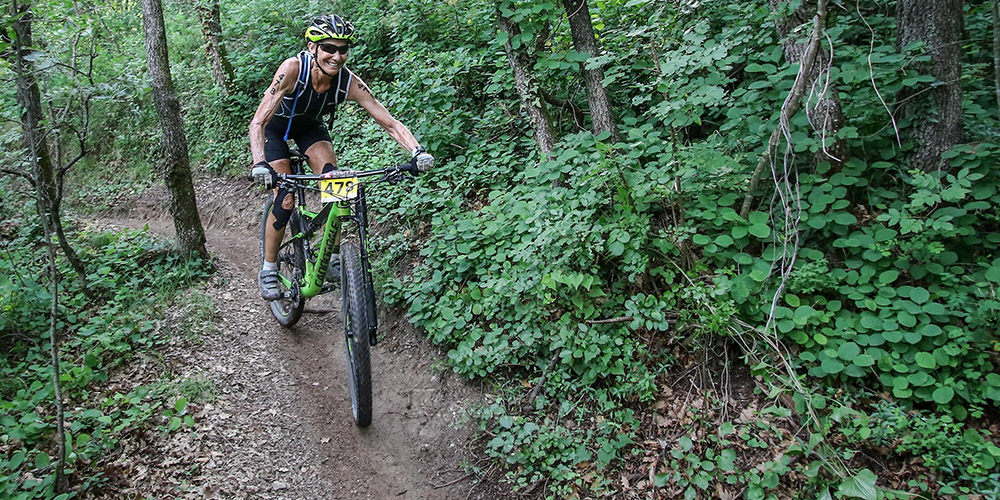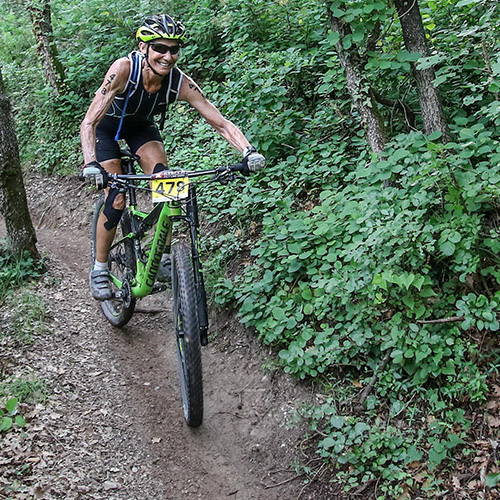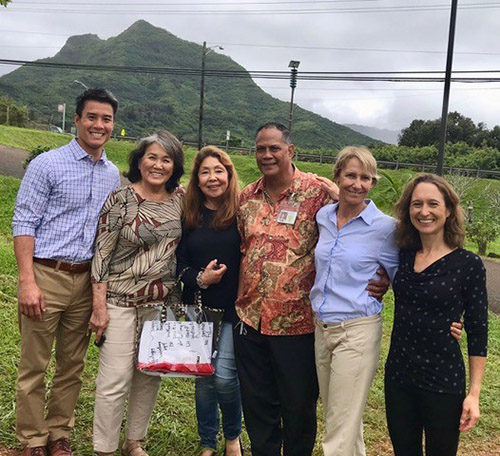
Repairing relationships for the incarcerated
A prison in Budapest may seem like an unlikely place to find a public health practitioner who lives on O‘ahu’s North Shore, but this is just one of many places Lorenn Walker has journeyed to help people who have committed crimes make a healthier transition back into society.
 Lorenn earned her Master of Public Health (MPH) from the University of Hawai‘i at Mānoa in 1996 and is now the director of the nonprofit organization Hawai‘i Friends of Restorative Justice. The organization works toward improving the justice system by promoting repaired relationships and responsibility for people who have committed crimes, and fostering healing for people who have been harmed by crime or social injustice.
Lorenn earned her Master of Public Health (MPH) from the University of Hawai‘i at Mānoa in 1996 and is now the director of the nonprofit organization Hawai‘i Friends of Restorative Justice. The organization works toward improving the justice system by promoting repaired relationships and responsibility for people who have committed crimes, and fostering healing for people who have been harmed by crime or social injustice.
A former trial attorney, Lorenn pursued a public health degree because she wanted to give a voice to the marginalized and disadvantaged people she encountered in the courtroom. But she knew that simply telling people to make better choices wasn't going to work.
"You have to design processes for people to become better experts of their own lives," she says. "Unless people have autonomy, words are meaningless. You have to give them the opportunity to discover on their own that they have choices, and that what they do matters."
Lorenn’s ideas about bringing this perspective to the justice system grew out of a key lesson she learned as a graduate student at UHM: the idea that public health is a democratic endeavor where people are equals. In one class, Lorenn recalls, professors Kathryn Braun and Jerry Grossman explained the differences between autocratic and democratic systems, and having worked as an attorney for 10 years, Lorenn understood the legal system was very autocratic. "The public health approach means that you're more of a facilitator, helping people to find their own paths," she says.
 Her own life choices have been shaped in many ways by a life-threatening experience in her 20s. A brutal attack in an alley left her nearly dead. But she survived, and a therapist who was assigned to her case spoke with her about going to school. As a high school dropout, she didn't think it was possible, but Dr. Harold Hall kept raising the issue, so she tried taking classes at Kauai‘i Community College.
Her own life choices have been shaped in many ways by a life-threatening experience in her 20s. A brutal attack in an alley left her nearly dead. But she survived, and a therapist who was assigned to her case spoke with her about going to school. As a high school dropout, she didn't think it was possible, but Dr. Harold Hall kept raising the issue, so she tried taking classes at Kauai‘i Community College.
"It changed my life completely," she says. Today, she carries that experience with her in her restorative justice work. "You have to expand people’s recognition that they have alternatives. It’s not about telling someone that they made the wrong choice. People don’t know they have other choices until they discover them. In other words, we don’t know what we don’t know."
Lorenn's approach to restorative justice is gaining attention. She wrote a book about including public health ideas in the justice system. This book, Reentry and Transition Planning Circles for Incarcerated People, has now been sold all over the world. Her ideas are being used in Washington, D.C., California, New York, other states and other countries.
Her background in public health has taught her to have optimism about what people will do when they see themselves as having control over their destiny. "I believe people can work to achieve anything they want," she says. “I see my job as showing people what I see as their strengths, regardless of their past, and that there are alternatives and choices. We always have potential."
